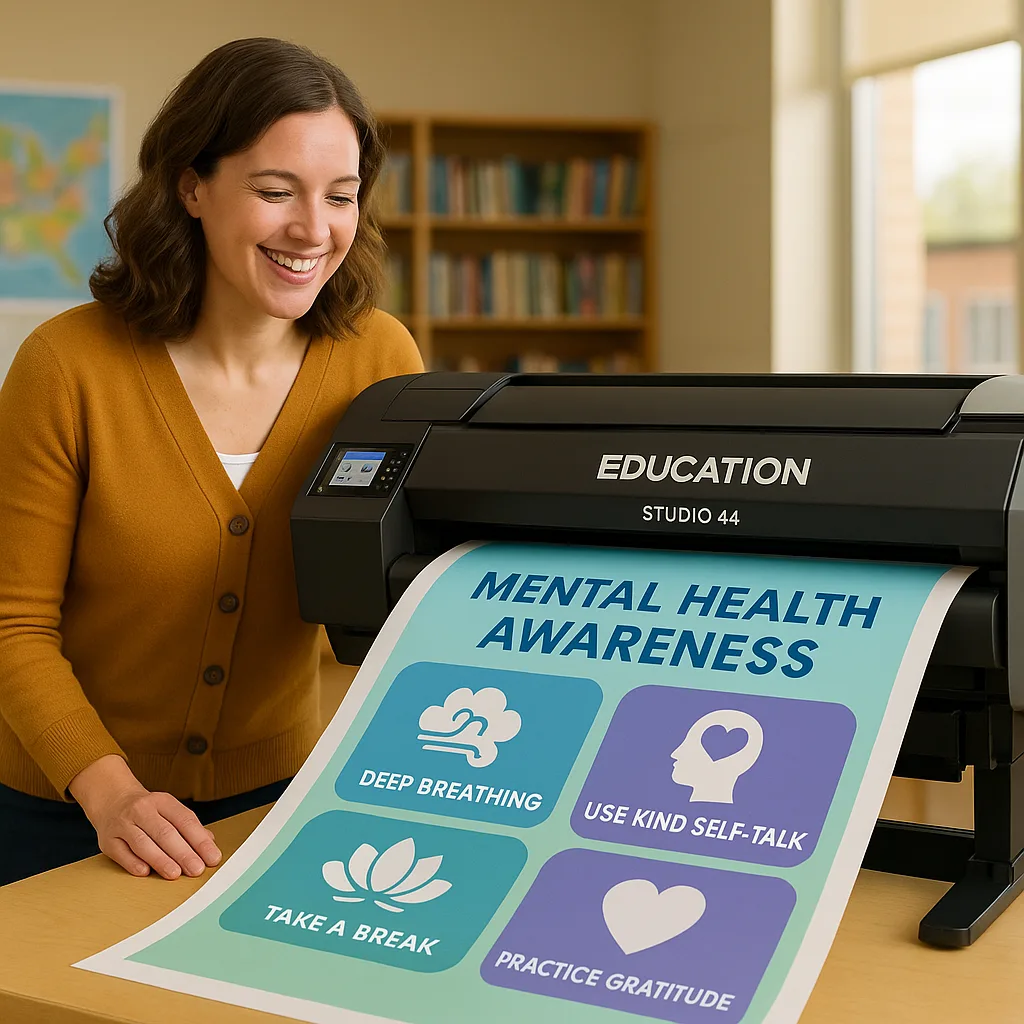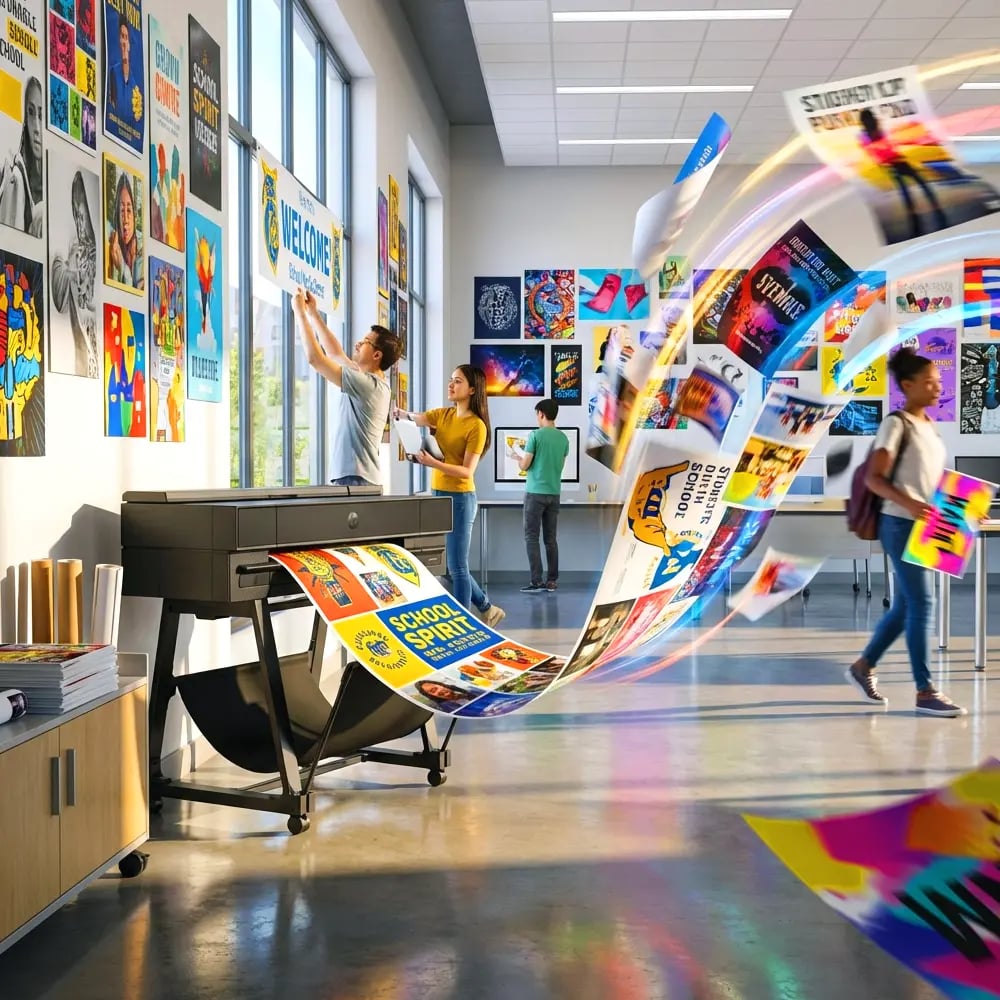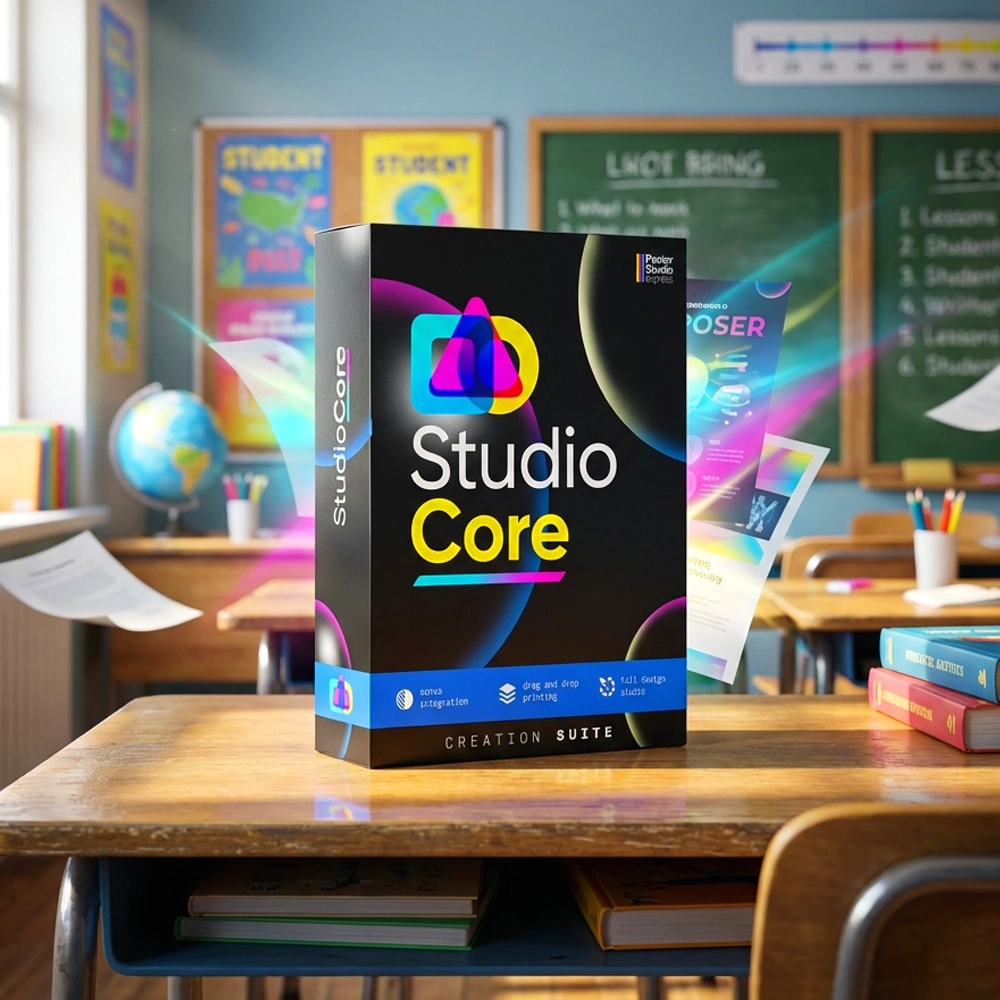
Building Your Poster Machine Maker Mental Health Spaces Toolkit
Last Tuesday, I watched third-grader Maya hesitate outside our counselor’s office. The plain door gave no clues about availability, and she shuffled away unseen. That moment sparked our school’s transformation using our poster machine maker mental health spaces initiative—and the results have been remarkable.
Research from the National Institute of Mental Health shows that 1 in 6 youth experience a mental health disorder annually. Yet many schools struggle to create visible, welcoming support systems. Today, I’ll share our district’s blueprint for designing mental health signage that actually gets students through the door—and how the right poster printers machines for schools make implementation surprisingly simple.
Creating effective mental health signage requires more than good intentions. After reviewing data from 22 schools in our district, we discovered that strategic visual communication increased counselor visits by 47% in just one semester. Here’s what works:
Essential Components: • Counselor availability systems with real-time updates • Calming corner identification markers • Wellness check-in station guides • Crisis resource displays • Mindfulness moment prompts • Peer support meeting notices
The Education Studio 44 Poster Maker has become our go-to for creating these large-format displays. Its 44-inch width allows us to design comprehensive mental health boards that span entire walls, making resources impossible to miss.

Creating welcoming mental health signage
Age-Appropriate Design Strategies
Different age groups respond to vastly different visual cues. Through collaboration with our school psychologists and testing with focus groups, we’ve developed grade-specific approaches that resonate:
K-2 Design
Friendly characters, bright colors, simple emotionsImplementation Tips
• Use animal mascots for comfort • Primary color palettes • Picture-based emotion wheels • “How do you feel?” visuals • Tactile elements when laminated3-5 Design
Relatable scenarios, emotion vocabulary, peer connectionsKey Elements
• Problem-solving flowcharts • Friendship guides • Worry scales (1-10) • Coping strategy menus • “It’s okay to ask for help” messaging6-12 Design
Mature aesthetics, privacy emphasis, resource-richTeen-Focused
• QR codes for anonymous resources • Text line information • Minimalist, Instagram-worthy designs • Statistics that normalize struggles • Clear confidentiality statementsCreating Your Counselor Availability System
The most impactful change we made? Transforming our counseling offices from mysterious closed doors into welcoming, transparent support hubs.
The 5-Step Availability Board
Step 1: Design the Base Board Create a 36″ x 24″ template with counselor photos, names, and specialties. Include a sliding availability indicator.
Step 2: Add Interactive Elements Incorporate pockets for appointment request cards and a “Drop a Note” mailbox for anonymous concerns.
Step 3: Include Visual Schedules Display weekly availability using color-coded time blocks. Green = available, Yellow = busy but interruptible, Red = in session.
Step 4: Emergency Protocol Section Clearly mark crisis resources with 24/7 hotline numbers and QR codes linking to chat support.
Step 5: Student Voice Integration Reserve space for rotating student testimonials: “Talking to Ms. Garcia helped me handle test anxiety!”
Calming Corner Design Guidelines
Every classroom needs a designated space where students can self-regulate. However, without clear visual markers, these areas often go unused. Our district’s occupational therapist helped develop signage that makes calming corners both inviting and instructional.
Essential Calming Corner Posters
Our most effective calming corner setup includes five key poster types, each serving a specific self-regulation purpose:
1. Entry Protocol Poster (24″ x 18″) Simple icons showing: Take off shoes → Choose a tool → Set timer → Begin breathing
2. Breathing Technique Guides (18″ x 24″ each) • Square breathing (4-4-4-4 count) • Rainbow breath (trace the arc) • Flower and candle (smell the flower, blow out the candle) • Finger breathing (trace your hand)
3. Emotion Thermometer (12″ x 36″) Visual scale from calm (blue) to overwhelmed (red) with coping strategies at each level
4. Sensory Menu Board (24″ x 24″) Pictures of available tools: stress balls, noise-canceling headphones, weighted lap pads, fidgets
5. Return-to-Class Checklist (18″ x 12″) Self-assessment questions: “Can I focus?” “Is my body calm?” “Am I ready to learn?”

Students who successfully self-regulate using visual calming guides
Wellness Check-In Stations That Work
Morning check-ins set the emotional tone for the entire day. Nevertheless, many teachers struggle to implement them consistently. Visual wellness stations solve this by making check-ins automatic and student-driven.
Elementary Design (K-5): Create a “How Are You Today?” board using weather metaphors. Students move their name tag to match their mood: • Sunny = feeling great • Partly cloudy = okay but need space • Rainy = sad or upset • Stormy = very upset or angry • Rainbow = getting better
Include a pocket below each weather type with appropriate coping cards. For instance, “rainy” might have cards suggesting: “Draw your feelings,” “Ask for a hug,” or “Visit the calming corner.”
Secondary Design (6-12): Teenagers need privacy and autonomy. Therefore, we designed anonymous check-in systems using QR codes and number scales. Students scan to access a private form that alerts counselors only if they select crisis-level numbers.
The physical board displays: • Daily mental health tips • Stress level thermometer (1-10) • “Scan for Support” QR codes • Peer support group schedules • Mindfulness moment prompts
This dual approach—visible resources with private reporting—increased help-seeking behaviors by 62% among our middle schoolers.
Implementation Timeline Using Poster Machine Maker Mental Health Spaces
Based on our district’s rollout across 22 schools, here’s a realistic timeline for implementing comprehensive mental health signage:
• Survey staff/students • Identify locations • Design templates • Order supplies
• Print signage • Laminate materials • Create interactive elements • Prepare installation
• Mount displays • Train staff • Student orientation • Soft launch
• Gather feedback • Make adjustments • Track usage • Share successes
Budget-Friendly Solutions
Quality mental health signage doesn’t require breaking the budget. With the right poster printers machines for schools, you can create professional displays at a fraction of outsourcing costs.
Using Education Express 24″ Package A, schools print professional mental health posters for less than a greeting card costs.
From template selection to laminated poster, our poster machine maker workflow takes just minutes—not days of waiting for external vendors.
Update messaging instantly as mental health needs evolve. No minimum orders or revision fees—just print what you need when you need it.
Measuring Impact and Continuous Improvement
Creating mental health signage is just the beginning. To ensure your visual supports truly serve students, establish clear metrics and feedback loops. Our district tracks several key indicators:
Quantitative Measures: • Counselor visit frequency (tracked weekly) • Calming corner usage logs • Disciplinary referral changes • Anonymous wellness check-in data • Crisis intervention statistics
Qualitative Feedback: • Student focus groups quarterly • Teacher observation forms • Parent survey responses • Counselor case notes • Peer support testimonials
Most importantly, we discovered that involving students in the design process dramatically increased engagement. When seventh-graders created their own mental health awareness posters during health class, peer conversations about wellness increased by 84%.
Ready to Transform Your School’s Mental Health Support?
Every day without visible mental health resources is a missed opportunity to support struggling students. Start building your comprehensive poster machine maker mental health spaces today.
Questions about implementing mental health signage in your school? Email me at claire@posterstudioexpress.com for personalized templates and age-specific design guides.






